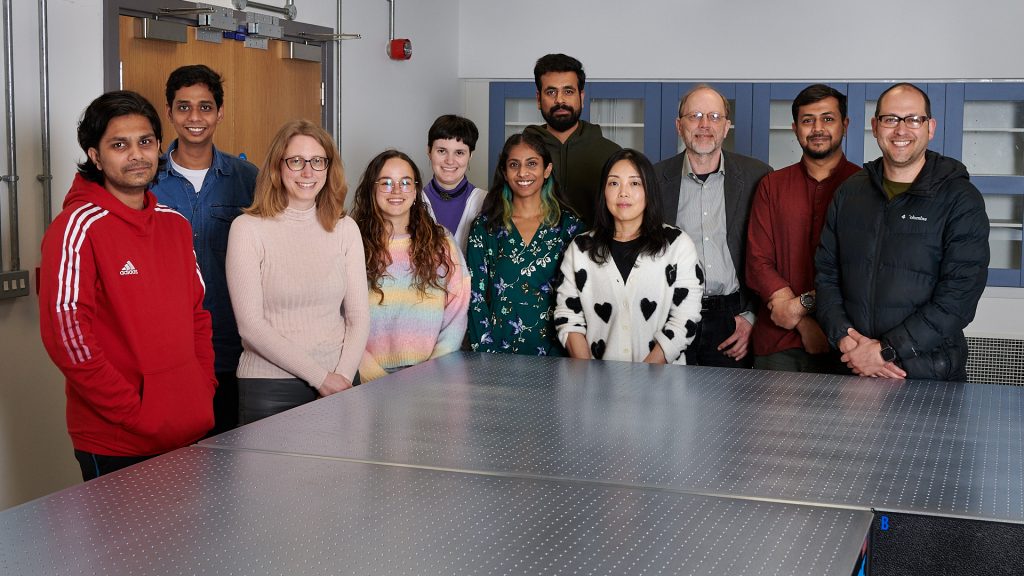A team of pioneering physicists at Cardiff University has achieved a new milestone in their quest to understand the universe’s most mysterious forces.
Their tabletop interferometer system, the Quantum Enhanced Space-Time Measurements (QUEST) experiment, has set a world record for sensitivity in searching for very high frequency gravitational waves.
Unlike gigantic kilometer-scale detectors such as LIGO and VIRGO, the QUEST setup fits neatly on a single bench. Despite its compact size, the device can detect length changes as small as 100 trillionths of the width of a human hair.
This unprecedented level of precision represents a new era in gravitational wave detection and offers a promising window into new physics, from the nature of spacetime to the elusive signatures of dark matter and quantum gravity.
Revealing the quantum structure of space-time
At the heart of the QUEST project lies the profound question: Is space-time quantized? In modern physics, space and time are not seen as separate entities, but as a single intertwined structure.
The Cardiff team aims to determine whether this structure is made up of the smallest measurable units, in the same way that energy and light are made up of discrete quanta.
The experiment represents an early step in uncovering the quantum structure of spacetime, a topic that has fascinated theoretical physicists for more than 50 years.
By applying interferometric techniques originally designed for gravitational wave observatories, QUEST brings a new approach to exploring the quantum realm at smaller, more controllable scales.
Record-breaking sensitivity from the tabletop
During its first three-hour science experiment, QUEST demonstrated sensitivity never before achieved in a laboratory-scale instrument.
Using two ultra-high-precision interferometers, the research team developed a correlation technique that can filter out noise and identify shared signals. This is an essential method for detecting very high frequency gravitational waves.
These waves rippling through the fabric of the universe are thought to originate from exotic sources such as the early universe, primordial black holes, or other unknown phenomena.
Cardiff researchers have taken a significant step towards uncovering evidence of an elusive cosmic signal by setting new limits on its existence.
A legacy of gravitational wave expertise
The QUEST team is based within the Gravitational Exploration Laboratory in Cardiff and builds on over 50 years of gravitational wave research.
Their expertise in interferometer design and quantum measurements puts the company in a unique position to adapt large-scale observation techniques to compact environments.
Professor Hartmut Grote and his colleagues highlight that this tabletop approach offers unparalleled flexibility and precision, allowing scientists to break new ground in quantum gravity and dark matter detection.
Insights gained from QUEST’s design and performance are also expected to influence the next generation of gravitational wave detectors, increasing our ability to observe the universe in greater detail.
A new era of space-time research
Following the success of their debut experiment, the QUEST team will embark on a multi-month scientific experiment to push the limits of sensitivity even further.
Each advancement in their instruments brings physicists closer to answering one of the most fundamental questions in science: How does gravity behave at the smallest scales in the universe?
The Cardiff team’s work shows that world-class discoveries don’t necessarily require monumental machinery. Sometimes tabletop experiments yield discoveries that redefine our understanding of gravitational waves and the very nature of reality.
Source link

